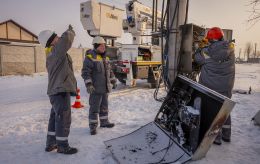Strike on Belbek airfield in Crimea: Satellite photos reveal aftermath
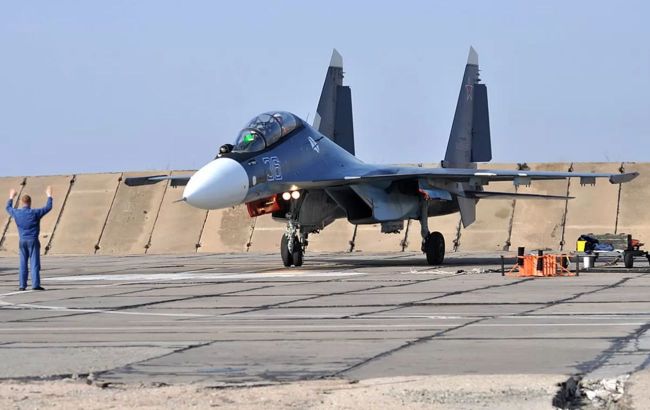 Photo: Belbek airfield (Russian media)
Photo: Belbek airfield (Russian media)
In the temporarily occupied Crimea, the recent explosions at the Belbek airfield caused traces of fire in several places where aircraft were located earlier this month. Such consequences were recorded on satellite images, according to DeepState, and The New York Times investigator Christian Triebert.
The portal published images from May 16 and May 1 of this year. The photos show traces of burning in several places where the Russian invaders' planes were previously located.
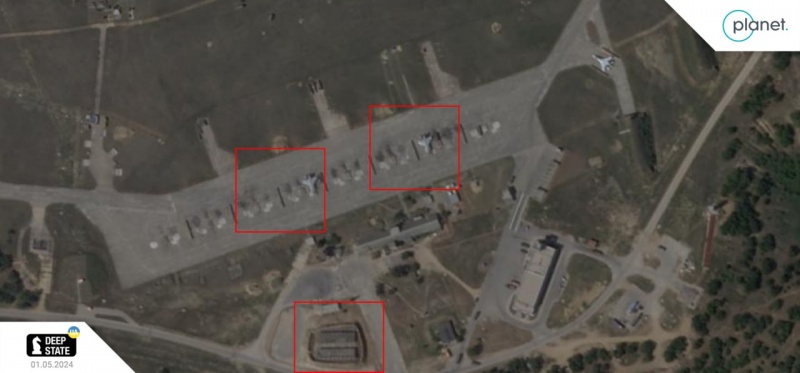
Photo: DeepState
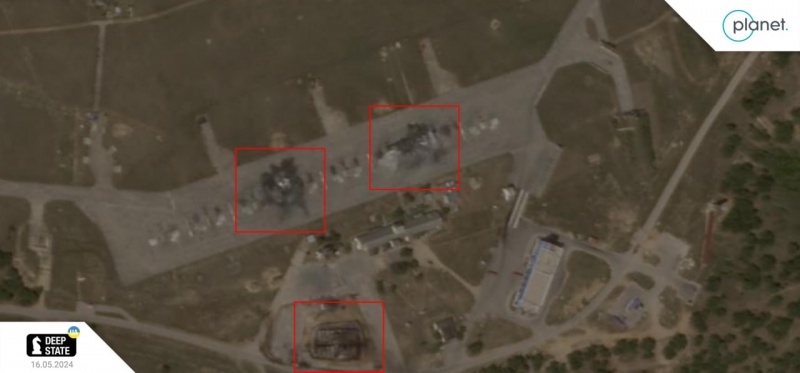
Photo: DeepState
In addition, a couple of photos visualize the consequences of burning an array of tanks with fuel and lubricants.
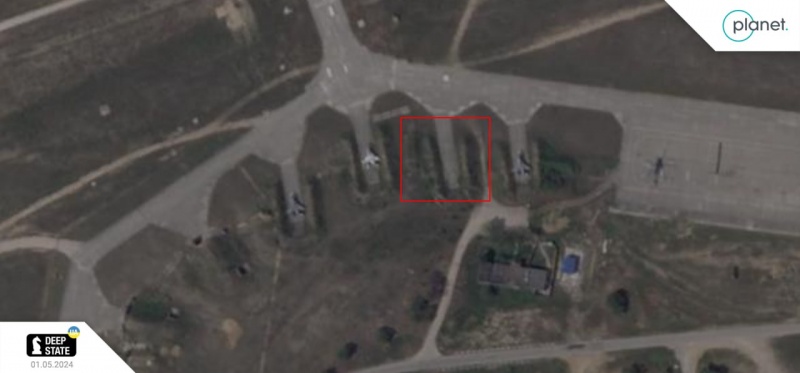
Photo: DeepState
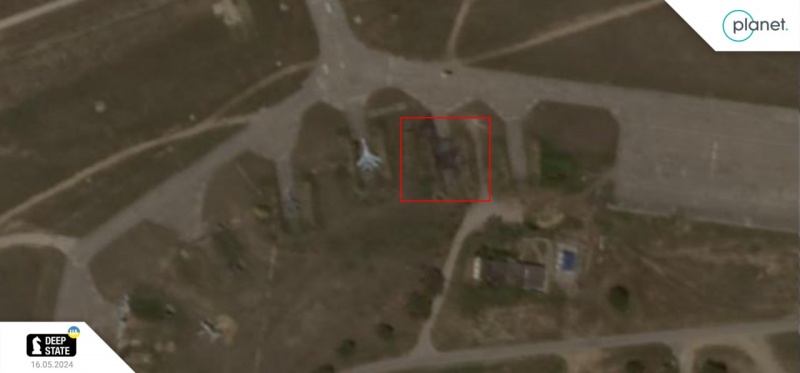
Photo: DeepState
The satellite images from Maxar show the remains of the burned aircraft in more detail.
A NYT investigator suggests that two MiG-31s and one Su-27 may have been destroyed and one Russian MiG-29 damaged.
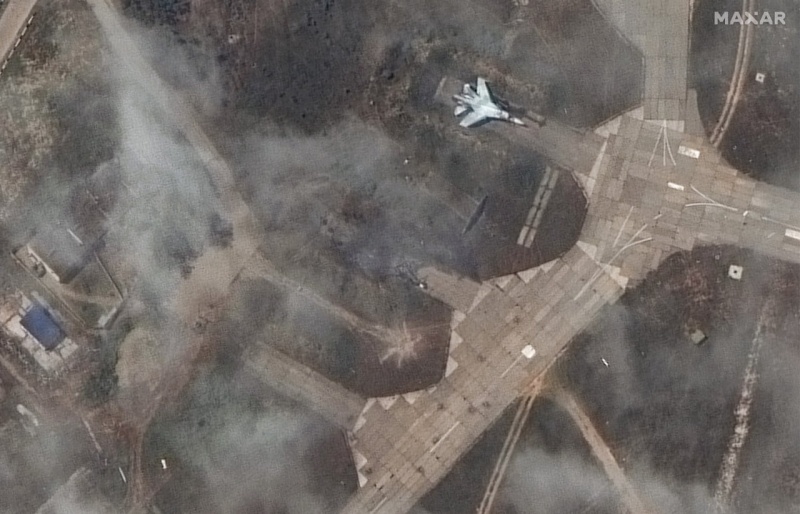
Photo: Christian Triebert, Maxar
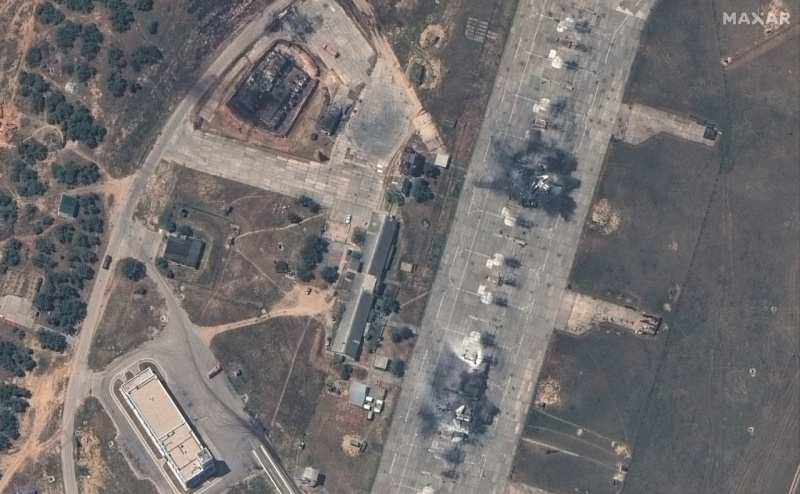
Photo: Christian Triebert, Maxar
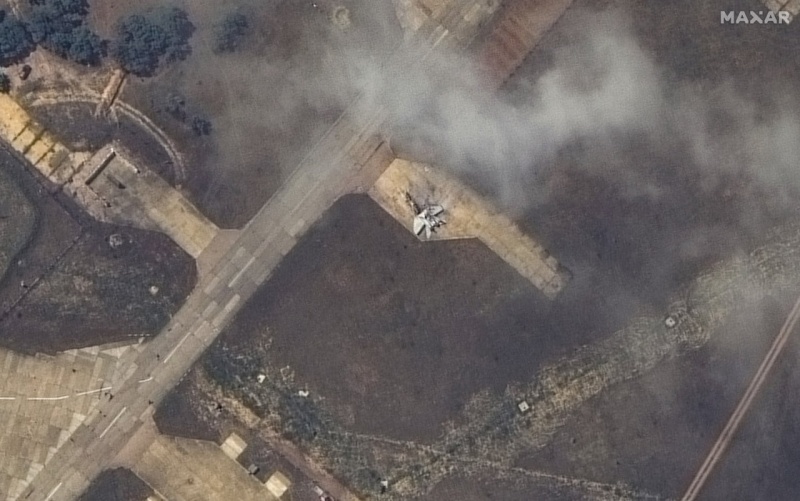
Photo: Christian Triebert, Maxar
Maxar's photo also confirms Planet's data on the damage to fuel and lubricant tanks.
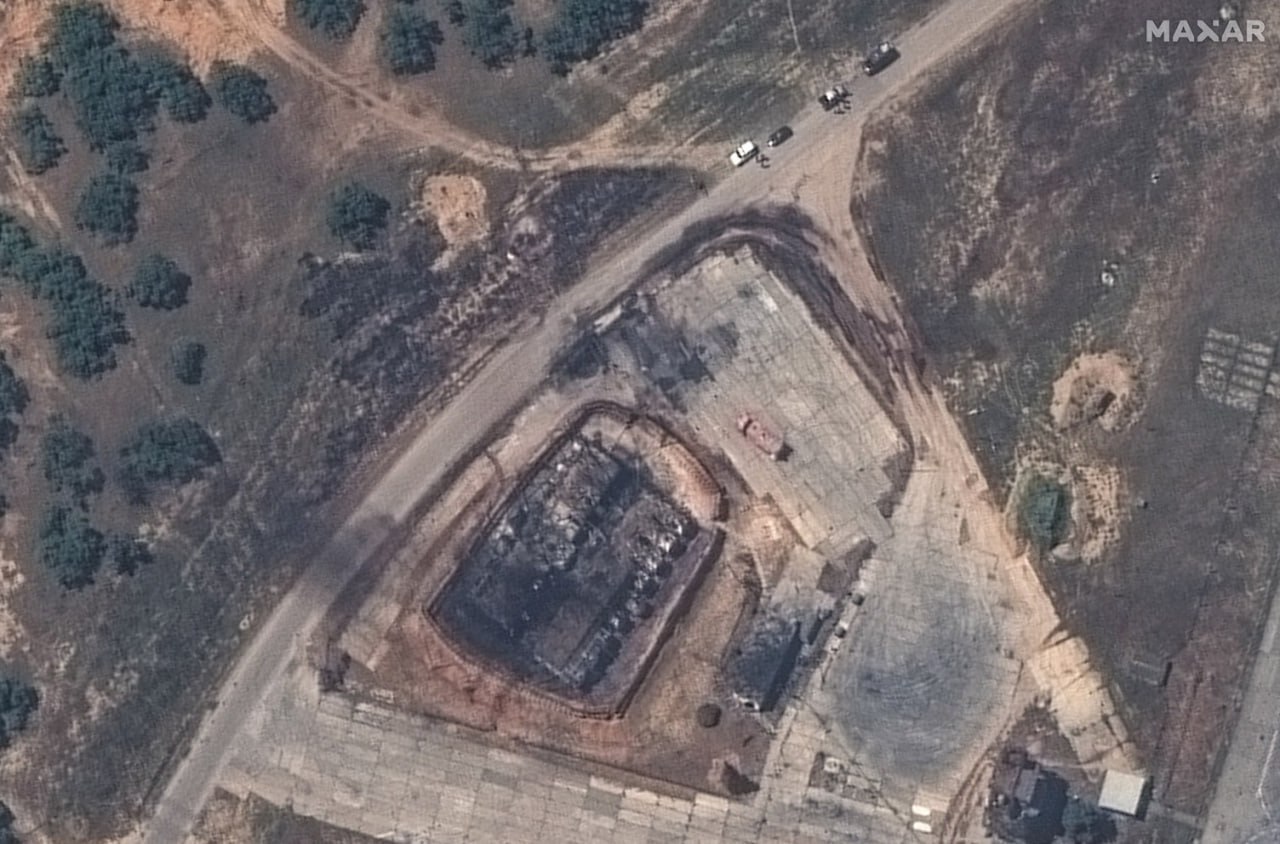 Photo: Maxar
Photo: Maxar
The Russian outlet ASTRA also published a photo that allegedly shows a destroyed S-400 Triumph radar near the village of Vishnevoye after the May 15 strike.
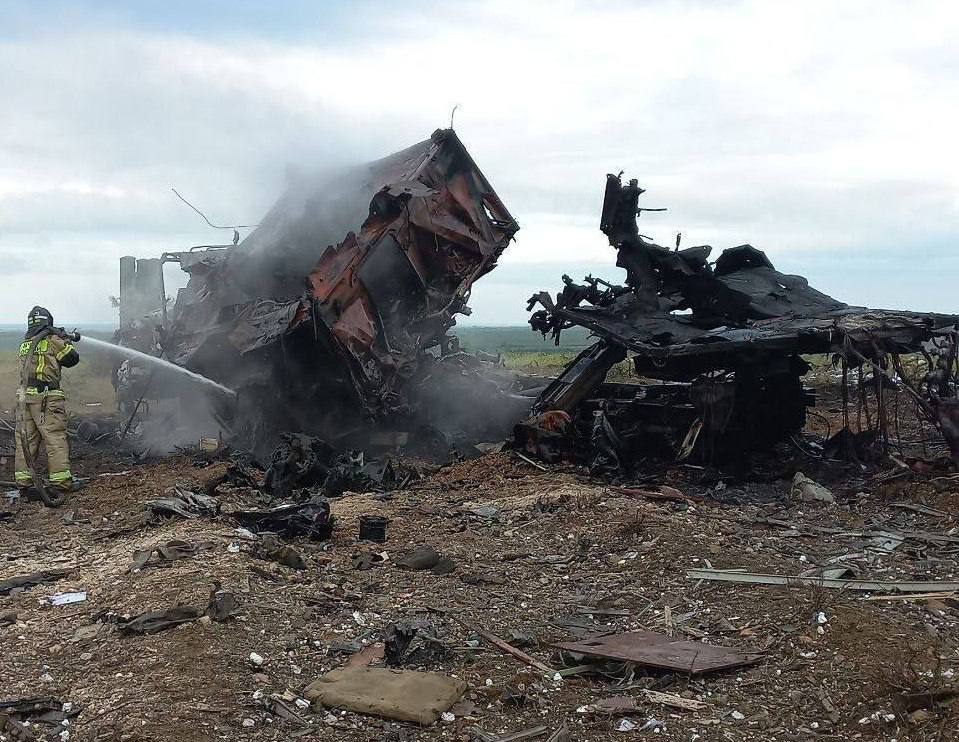 A destroyed S-400 Triumph air defense system in occupied Crimea after a strike on May 15 (photo: t.me/astrapress)
A destroyed S-400 Triumph air defense system in occupied Crimea after a strike on May 15 (photo: t.me/astrapress)
Attack on Belbek airfield
On the night of May 15, explosions were heard in the occupied Crimea in Sevastopol, in particular in the area of the Belbek military airfield. Later, satellite images confirmed that a fire broke out at the facility that night.
The Russian Defense Ministry claimed that ten ATACMS missiles had allegedly attacked Crimea, while the Russians assured that they had shot them all down.
As suggested in the press, MiG-31K and S-400 Triumph air defense systems could have been hit at the Belbek airfield in Crimea.

